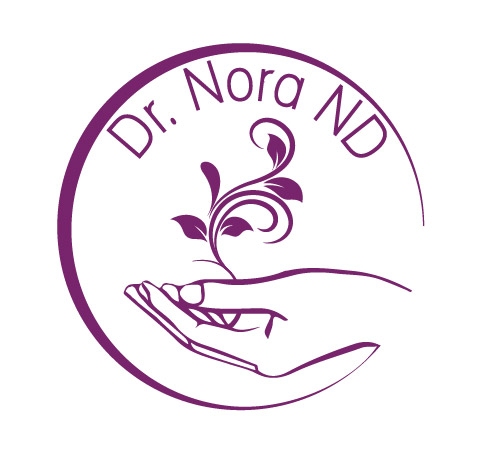From the moment we are born the gut becomes populated with all sorts of microbes that have shown to be beneficial in many ways, known as the microflora. The microflora help breakdown and provide nutrients to the gut cells, stimulates maturation and balancing of the immune system preventing hyperimmune reactions resulting in allergies and autoimmune conditions, provides protection from infection, and are a source of vitamin K and B vitamins such as folic acid (B9), cobalamin (B12), biotin (B7), and riboflavin (B2). Although beneficial, when the microbes become overpopulated, especially in the small intestine it can create problems. Naturally, small intestine has a much lower microbial population than the large intestine. When there is an excessive growth of bacteria in the small intestine with accompanying symptoms similar to Irritable Bowel Syndrome (IBS), this is typical of Small Intestinal Bacterial Overgrowth (SIBO). SIBO can be a major contributing cause of IBS. It has been found that 84% of IBS sufferers test positive for SIBO.
The common symptoms exhibited by patients suffering from SIBO are:
- Bloating
- Gas
- Abdominal discomfort and/or pain
- Diarrhea
- Constipation
- Alternating diarrhea and constipation
- Feeling of incomplete bowel evacuation
How do you test for SIBO?
The best test to help identify the presence of bacterial overgrowth in the small intestine is called Hydrogen/Methane Lactulose Breath Test. This is an at-home test that takes about 3 hours to complete, requiring a preparatory diet the day before and a 12-hour fasting prior and during the test. On the day of the testing you drink small amount of lactulose, which is a laxative medication not absorbed by the body, and every 20 minutes, for 3 hours, you breathe into the respective vial. The test measures the level of hydrogen and/or methane gas produced by bacteria, since only bacteria have the enzymes to break down lactulose into the gas byproduct. The same gases are also produced as a break down product of carbohydrates, which feed the bacteria and promote their growth further causing some of the typical symptoms such as bloating, abdominal discomfort, gas, etc.
Why do you get SIBO?
It is debated whether SIBO is a complication occurring as a result of other underlying dysfunctions or it is the cause.
SIBO is often considered when:
- IBS develops after suffering an acute infectious gastroenteritis
- Improvement in IBS symptoms after antibiotic treatment
- Symptoms of IBS get worse with high fiber intake
- Celiac patients that do not improve on gluten-free diet
The body has natural defenses to prevent overgrowth of bacteria. The following are ways that bacteria can overcome and survive these defenses.
- The stomach acidity prevents bacteria from surviving. When you suffer low stomach acidity, which is much more common than overproduction of acid, the bacteria are more likely to survive that barrier and colonize the small intestine, also allow other bacteria such as Helicobacter pylori to reside in the stomach causing gastric ulcer. Some of the common causes of low stomach acidity can be from aging, chronic use of acid blocking medications and antacids, prior gastric bypass surgery, history of pylori infection, poor diet, and some autoimmune conditions.
- The immune function in the gut is also crucial for preventing overgrowth, however, it can also contribute to additional problems such as inflammation leading to leaky gut (ie. intestinal permeability).
- Sufficient bile acids and digestive enzymes are also important to ensure proper break down and absorption of food so bacteria do not have the opportunity to use it as their own food source.
- The natural cyclic peristaltic motion of the gut that encourages emptying of the stomach contents and the sweeping motions of the small intestine are controlled by the migrating motor complex (MMC). If the function of the MMC is impaired then the body is unable to clear the overgrowth of bacteria. Causes of MMC dysfunction can be related to diabetes, thyroid issues, medications, surgery, chronic stress, post-infectious, and autoimmune conditions.
- Lastly, alongside the other potential contributors of SIBO, there is possibility of structural abnormalities in the small intestine can may prevent bacterial clearing such as diverticula, fistula, and obstructions from multiple causes such as adhesion, endometriosis, or tumor.
How is SIBO treated?
Conventional medicine, if the doctor recognizes SIBO as the issue, will treat by giving a one to two week course of broad-spectrum antibiotics, such as Rifaximin, prescribe prokinetic drugs, which promote the natural emptying motions of the gut, and encourage a low carbohydrate diet. Although this typical treatment is somewhat effective, there is a high risk of symptoms coming back especially if underlying causes are not addressed.
Dr. Nora ND will take patients through thorough investigation by questioning, physical exam, and testing to determine the causative factor(s) by working in collaboration with gastroenterologists. If it is determined that the patient does have SIBO, then there are several stages of treatment such as, but not limited to:
- Herbal antimicrobials
- Liver support formulas to help prevent bacterial die off reaction
- Natural prokinetics to help promote sweeping motion of the gut
- Re-establish balanced gut microflora
- Tailored dietary advice to help prevent recurrence of SIBO and starve off bacteria
- Address other underlying contributors to SIBO such as:
- hypochlorhydria
- insufficient bile acid and pancreatic enzymes
- balance the immune system to prevent inflammation
- heal the gut to prevent intestinal permeability
- address chronic stress causing heightened experience of symptoms

